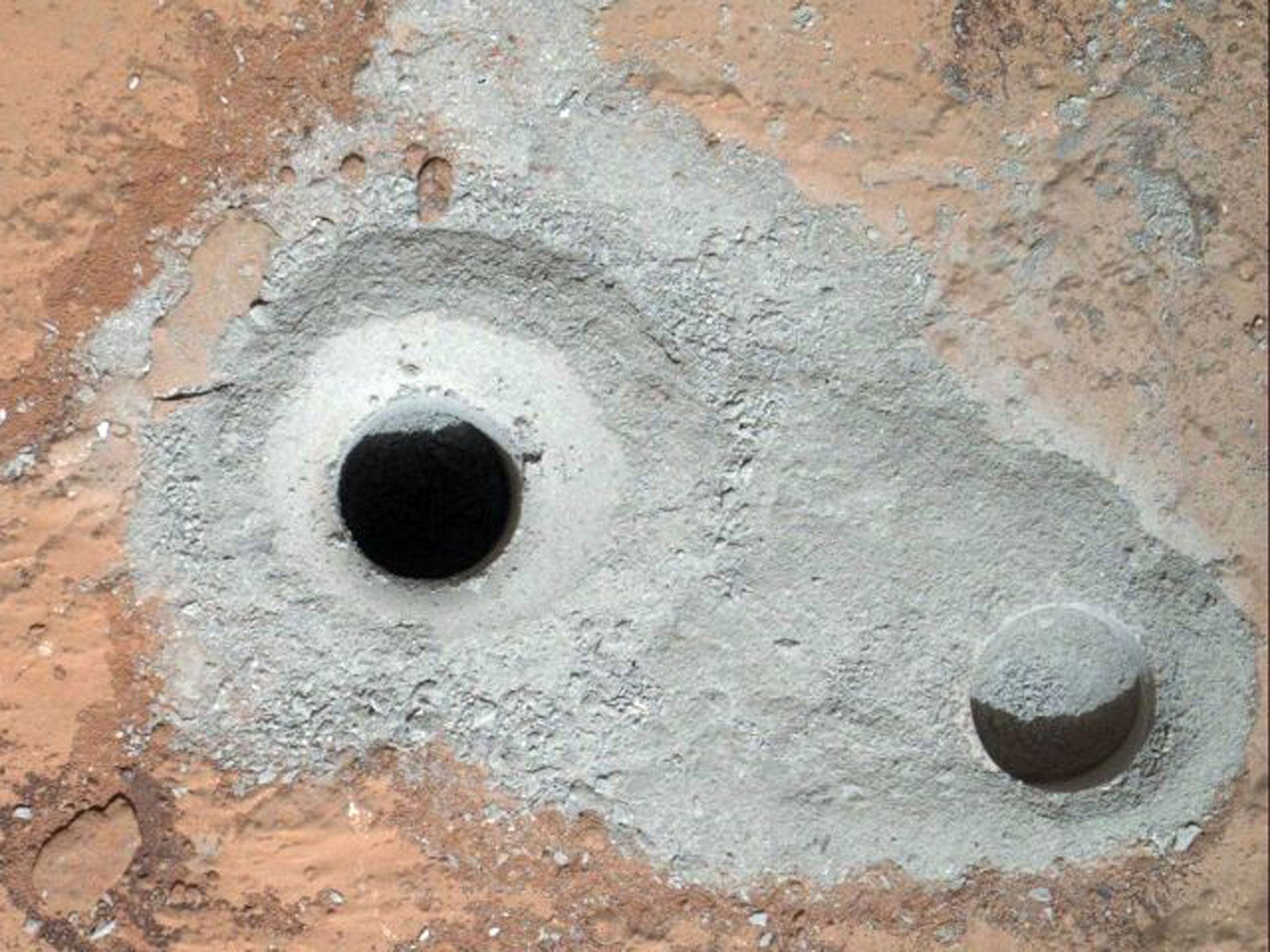Mars rover Curiosity drills into Martian surface
Scientists toast success on "another proud day for America"

Nasa scientists have used a remote-controlled robot to drill into the surface of Mars for the first time, hoping to learn if our solar system's most earth-like planet could support life.
Yesterday the agency's car-sized Curiosity rover, which uses a drill at the end of a robotic arm, beamed back images showing a hole about 1.6 cm wide and 6.4 cm deep in a patch of veiny, sedimentary bedrock which bears signs of contact with water.
The small pile of powder thrown up during the operation will now be chemically analysed by the rover's onboard lab. The rock is believed to hold evidence about long-gone wet environments.
Yesterday Nasa tweeted: "First drilling on Mars to collect a sample for science is a success"
Engineers spent days preparing to use Curiosity's drill, including boring practice holes earlier in the week. Previous Mars probes have had tools to scrape and grind into rock, but never a drill for subterranean samples.
Curiosity's first drill target was a rock laced with veins of what appear to be water-deposited minerals. The rover, which landed on Mars on August 6 for a two-year mission, is looking for the geological and chemical conditions needed to support and preserve microbial life.
NASA's lead scientist, John Grunsfeld, said: "The most advanced planetary robot ever designed is now a fully operating analytical laboratory on Mars.
"This is the biggest milestone accomplishment for the Curiosity team since the sky-crane landing last August, another proud day for America."
Curiosity's ultimate target is a 3-mile high mound of layered sediment rising from the floor of the Gale Crater landing site.
The rock Curiosity drilled is called John Klein in memory of a Mars Science Laboratory deputy project manager who died in 2011.
Mars rover Curiosity finds evidence of ancient fast-moving streams on surface of red planet
Scientists claim new data is 'strongest evidence yet' that Mars may have supported life
Join our commenting forum
Join thought-provoking conversations, follow other Independent readers and see their replies
Comments